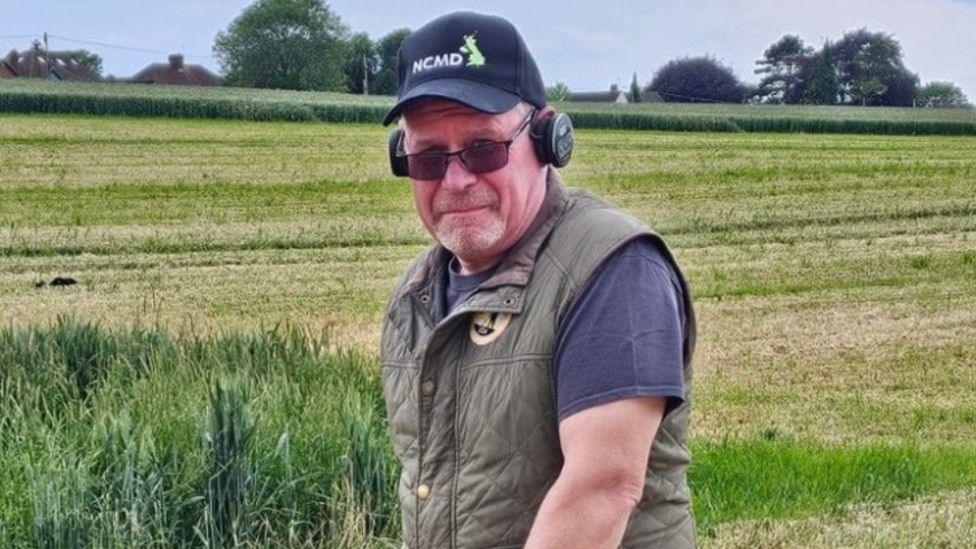Battle was 'turning point in England's history'
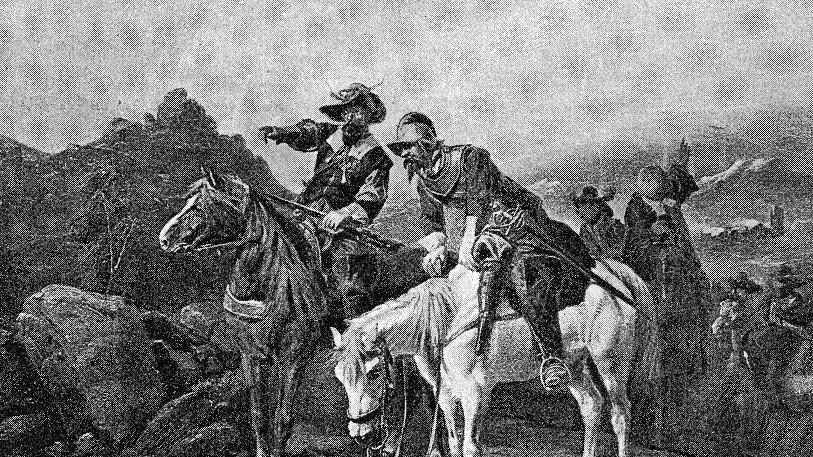
Oliver Cromwell's career was boosted by the battle
- Published
It has been 380 years since the Parliamentarians defeated the Royalists at the Battle of Langport, paving the way for one of the biggest changes in England's history.
The Somerset battle effectively ended Royalist control in the West Country, a key strategic region. This boosted Parliamentarian morale and crippled their opponents forces in one morning of fighting.
Experts believe that the battle of July 1645, fought during the English Civil War, marked a turning point that ultimately led to the execution of King Charles I and the abolition of the monarchy.
Historian Julian Humphrys, of the Battlefields Trust, said: "This battle really was the beginning of the end for the Royalists."
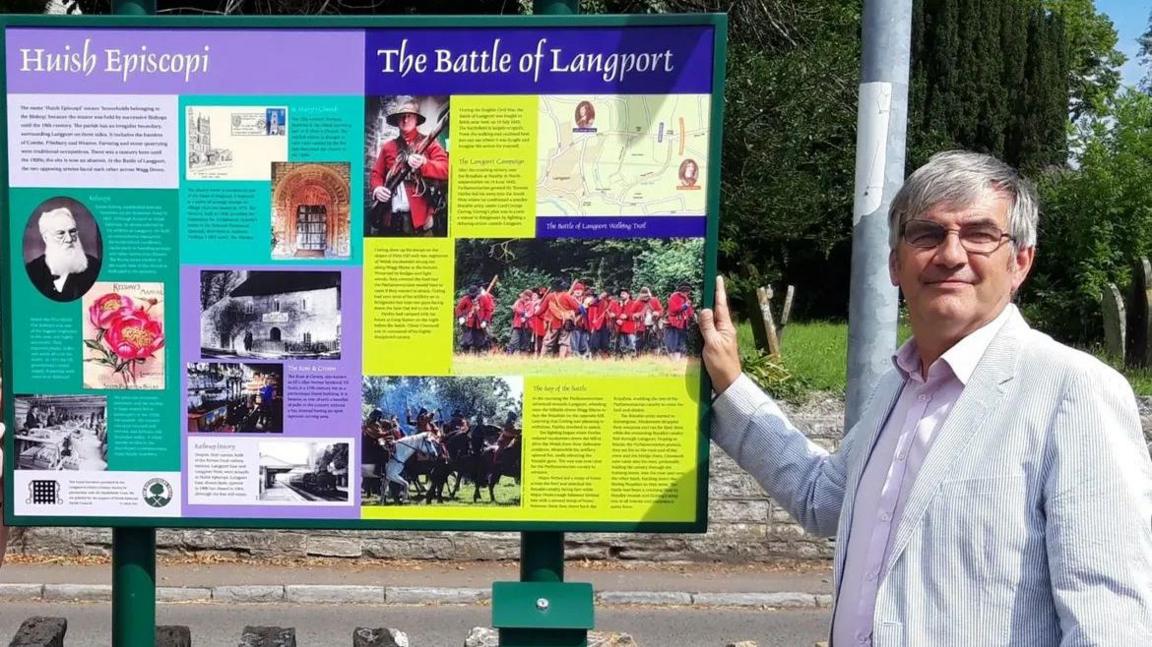
Historian Julian Humphrys said the Royalists were a "bunch of boozers"
Lord Goring led the Royalists for King Charles I, while Sir Thomas Fairfax headed the Parliamentarian's New Model Army, known as the Roundheads, who were a skilled, disciplined force.
Mr Humphrys said the Royalist army was different.
"They weren't the finest of troops you could say… a bunch of boozers really and their discipline was poor, they didn't have much money.
"They weren't being payed and they lived by nicking things off the local population who didn't like them in the slightest," he added.
Lord Goring was holding an area about one mile east of Langport towards the village of Huish Episcopi.
The Royalists wanted to buy time so their army could pull back to Bridgwater. They planted musket troops along the hedges, with a few guns to protect the ford crossing.
It was then that the Parliamentarians came in with "a bold attack", said Mr Humphrys.
They cleared the hedges of Royalists at what is now Picts Hill by sending musketeers down.
This meant their cavalry could "splash across the crossing and drive the Royalists back".
The Royalist troops did not put up much of a fight after the Roundheads crossed the water and were driven back quickly, he said.
Mr Humphrys added that metal detectors are stilling unearthing musket balls and pistol shots from the action.
Some local people who were being affected by the war armed themselves and were known as "clubmen".
They would defend their area from the army pillaging their homes using things like cudgels and pitchforks.
"The reality for the people of the time was awful.
It disrupted trade, the armies were never very healthy so they spread disease, they damaged buildings, they took people's food.
By 1645, the people of Somerset were "very fed up of the war", Mr Humphrys added.
Oliver Cromwell
Mr Humphrys said Oliver Cromwell, the most famous Roundhead, detailed that he was actually there at the time, but "he was more of a second-in-command".
"He was a fairly minor east Anglian MP, but it was these victories which got him promoted gradually over time.
"This led to him eventually commanding the whole of Parliament's army," Mr Humphrys added.
When it comes to commemorating the Civil War, Mr Humphrys said "we need to remember these people were our ancestors".
"Many of the ordinary soldiers had very little say of whether they fought or not and the cost of a civil war is a huge tragedy wherever it happens."
"A greater percentage of the population died from this civil war than in World War One," he said.
Get in touch
Tell us which stories we should cover in Somerset
Follow BBC Somerset on Facebook, external and X, external. Send your story ideas to us on email or via WhatsApp on 0800 313 4630.
Related topics
- Published7 January
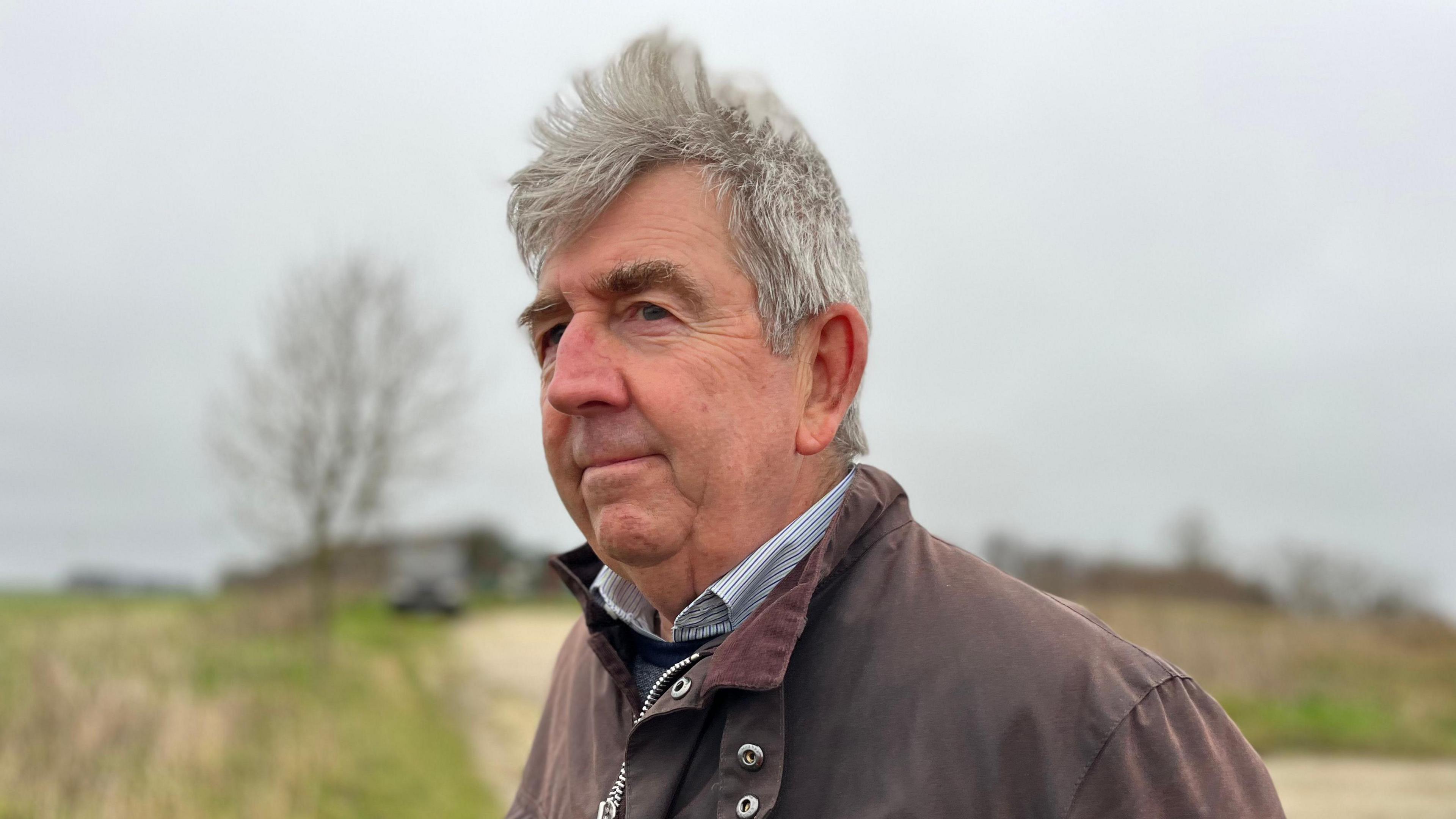
- Published25 April 2024
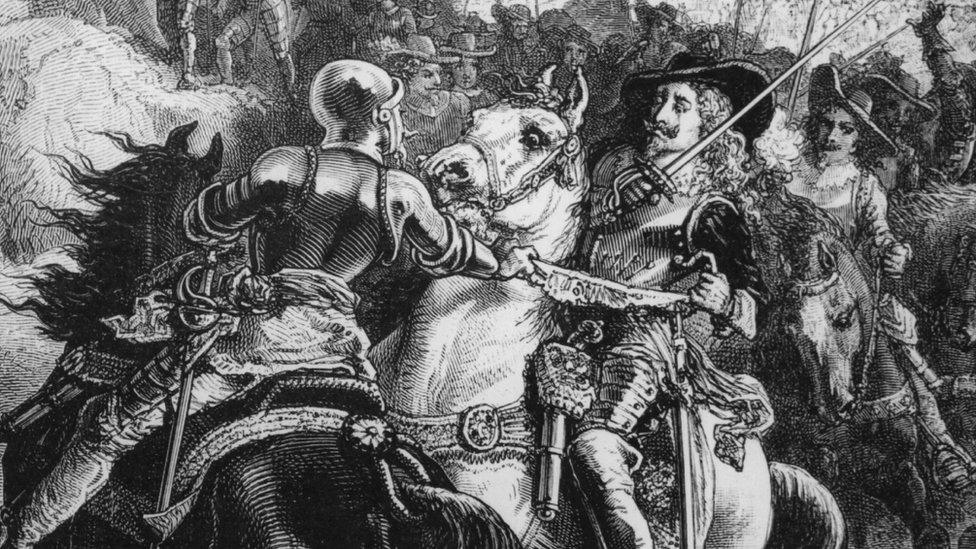
- Published10 July
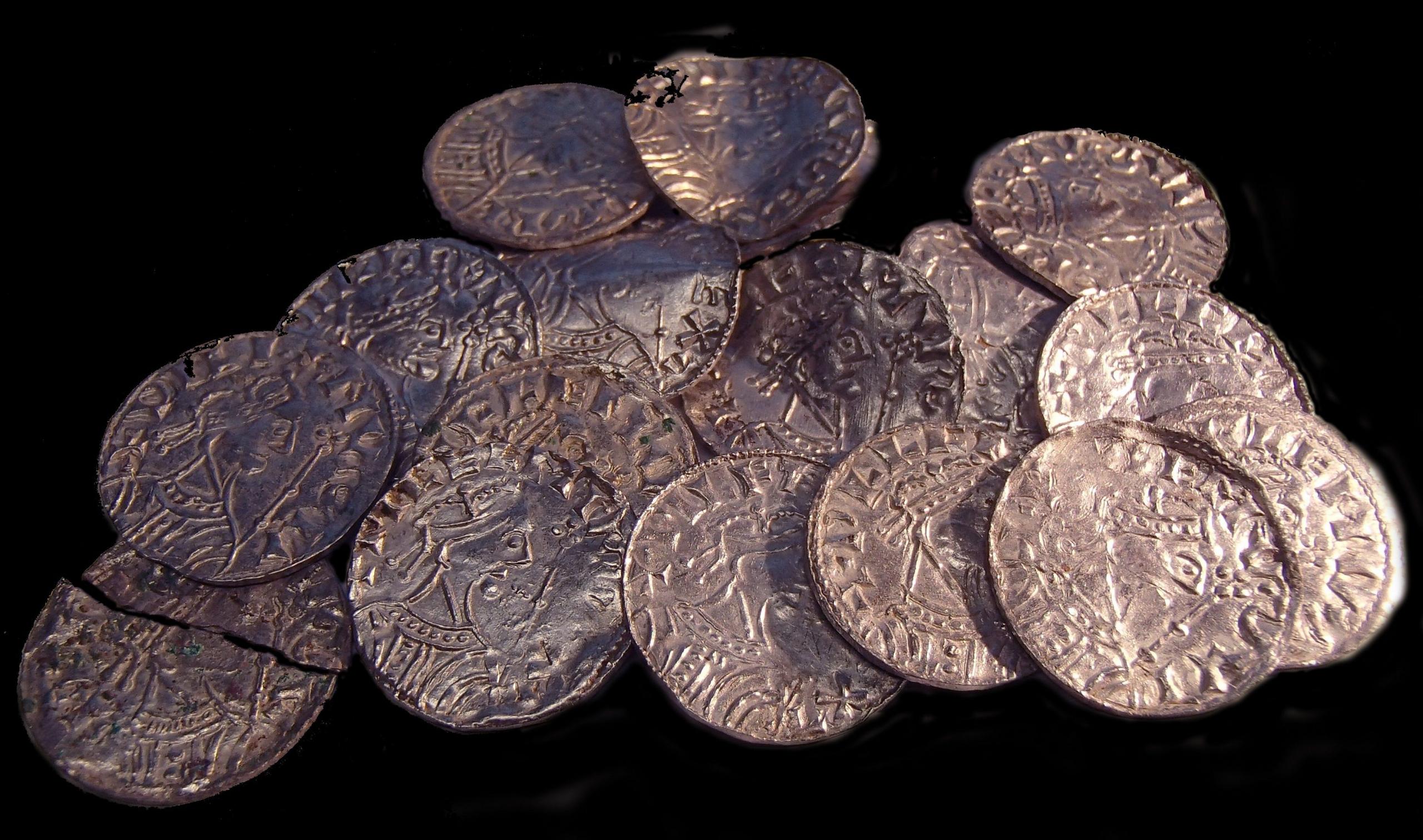
- Published13 June
